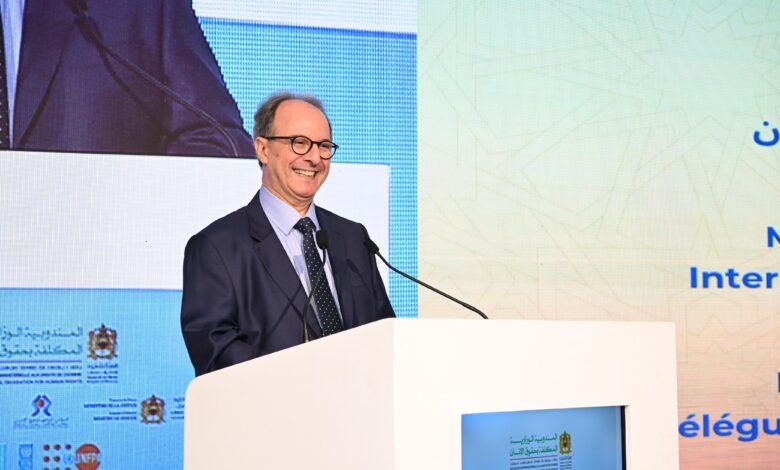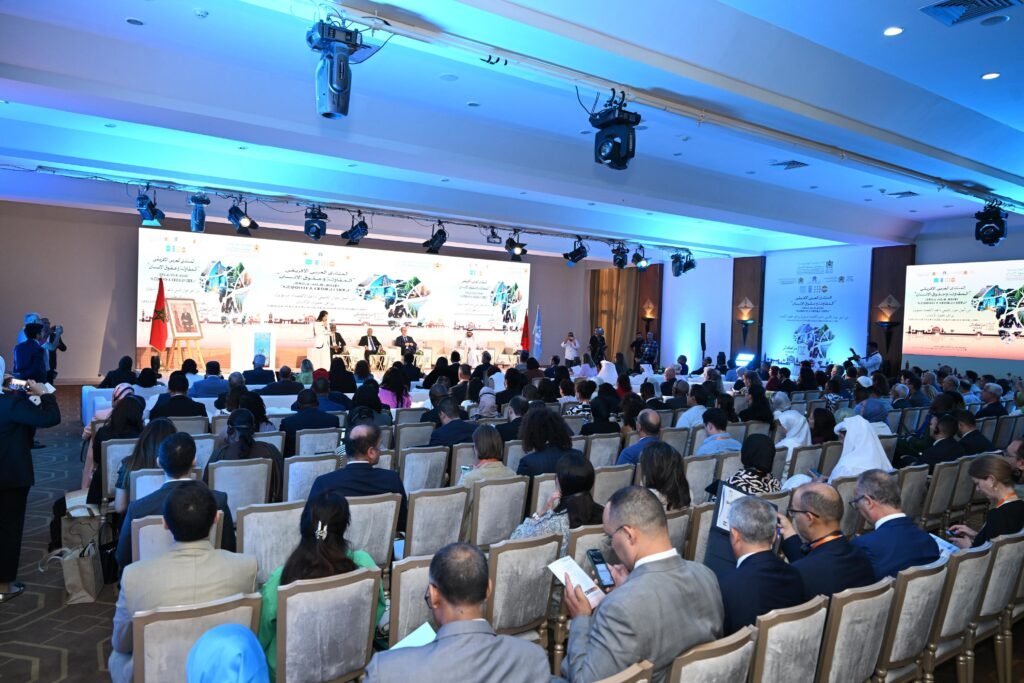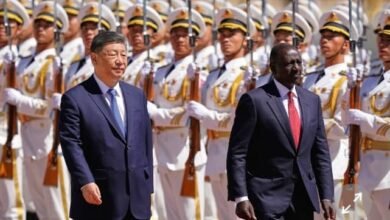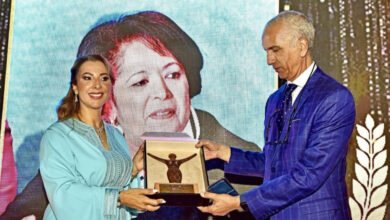Arab-African Forum Highlights the Role of Businesses in Advancing Human Rights and Sustainable Development

By Karima Rhanem, Senior Managing Editor
The Arab-African Forum on Business and Human Rights opened in Marrakech on Tuesday, drawing over 200 high-level participants from across the Arab and African regions. Government officials, representatives of the private sector, UN agencies, national human rights institutions, civil society, and academic experts gathered to explore how business practices can align with international human rights standards while contributing to inclusive and sustainable development.
Held under the theme “For a Regional Dialogue in Favor of a Responsible Economy that Respects Human Rights,” the two-day forum served as a platform for deepening regional collaboration and promoting best practices that embed human rights into business models and governance.











In his opening remarks, Mohamed El Habib Belkouch, Interministerial Delegate for Human Rights, emphasized that businesses have become spaces where a wide spectrum of rights—economic, social, cultural, and environmental—are exercised. He called for the development of a national action plan to guide corporate practices toward greater respect for human rights, including impact assessment tools, stakeholder capacity building, and reference frameworks for responsible conduct. Belkouch also pointed to Morocco’s own public institutions as examples of citizen-centered enterprise, underlining the importance of South-South cooperation and regional dialogue.
Younes Sekkouri, Minister of Economic Inclusion, Small Business, Employment and Skills, highlighted Morocco’s unique model of combining economic development with human rights protection. He noted major reforms such as the institutionalization of social dialogue, a new legal framework for regulating the right to strike, and the expansion of universal health coverage to 22 million citizens. Sekkouri stressed the need to harmonize wealth creation with the protection of all actors along the value chain, reaffirming that Moroccan enterprises are fully engaged in this inclusive development path.
A legal perspective was provided in a speech delivered on behalf of Justice Minister Abdellatif Ouahbi, who underscored that addressing the challenges faced by enterprises in Arab and African regions requires sustained legislative reform. He called for stronger legal instruments—both nationally and through regional and bilateral agreements—to reinforce corporate social responsibility and human rights protection. He added that economic attractiveness must go hand in hand with safeguarding labor rights, institutionalizing social dialogue, and ensuring worker participation in decision-making.
Via a recorded message, Amina Bouayach, President of Morocco’s National Human Rights Council (CNDH), emphasized that human rights must be systematically integrated into the legal and governance frameworks of economic systems. She reiterated the role of legal mechanisms in anchoring a rights-based business culture.
In another video address, Carla Haddad Mardini, Director of Private Sector Fundraising and Partnerships at UNICEF, made a compelling call for the mobilization of private sector actors in support of human rights, with a special emphasis on children’s rights as a fundamental condition for inclusive and lasting development.
The forum, spearheaded by the Interministerial Delegation for Human Rights (DIDH) in collaboration with ministerial departments, national institutions, and UN agencies, aimed to build a broader dialogue where human rights are not a constraint but a catalyst for a healthier business climate and sustainable economic progress by 2030.
Panel discussions tackled the implementation of the UN Guiding Principles on Business and Human Rights, legal and economic mechanisms for sustainable investment, and the need for coordinated regional efforts to foster accountability, environmental protection, and shared prosperity. The forum closed with a collective call for institutionalizing cooperation platforms and sharing best practices across the Arab-African space.





